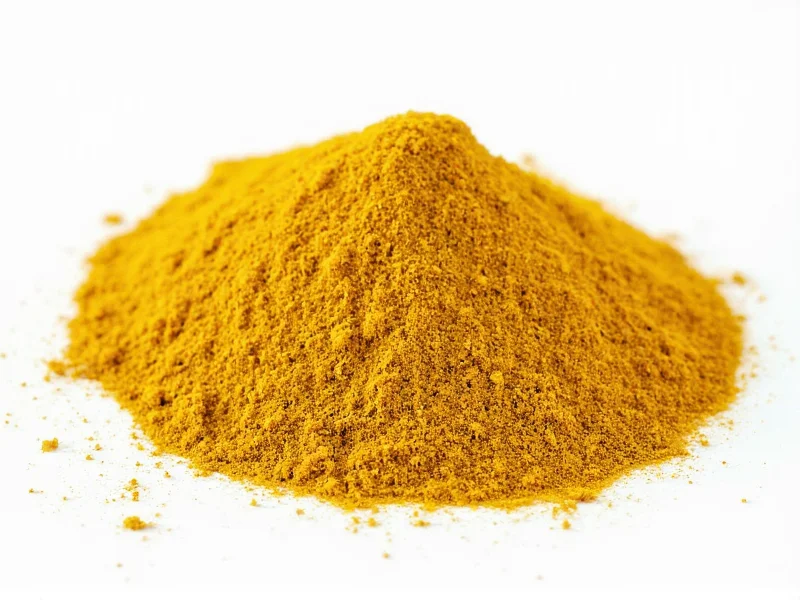Ground mustard seed brings a distinctive tangy, slightly spicy flavor to marinades, dressings, and pickling solutions. When you're out of this pantry staple, knowing effective substitutes ensures your recipes maintain their intended flavor profile without compromising quality. Understanding the proper substitution ratios and flavor characteristics is crucial for successful cooking and baking.
Understanding Ground Mustard Seed and Its Culinary Role
Ground mustard seed, made from finely milled brown or yellow mustard seeds, provides more than just heat—it contributes complex flavor notes that enhance sauces, rubs, and preserved foods. Unlike prepared mustard, which contains vinegar and other ingredients, ground mustard seed is pure spice that activates when mixed with liquid. This activation process creates the pungent flavor we associate with mustard-based recipes.
Top Substitutes for Ground Mustard Seed
When searching for a ground mustard seed alternative, consider both the flavor profile and functional properties required by your specific recipe. Here are the most reliable options:
1. Prepared Mustard
Prepared yellow or Dijon mustard serves as an excellent ground mustard seed replacement in most applications. For every teaspoon of ground mustard seed required, use one tablespoon of prepared mustard. This substitution works particularly well in salad dressings, meat glazes, and sandwich spreads. Remember that prepared mustard contains vinegar and water, so you may need to reduce other liquids in your recipe by 1-2 teaspoons per tablespoon of mustard added.
2. Mustard Powder
Mustard powder and ground mustard seed are essentially the same product with minor processing differences. You can substitute them in a 1:1 ratio with no adjustments needed. This makes mustard powder the most straightforward ground mustard seed alternative for pickling recipes, spice rubs, and dry marinades. Look for pure mustard powder without added spices for the most accurate flavor profile.
3. Turmeric and Vinegar Combination
When neither mustard powder nor prepared mustard is available, create a makeshift substitute using 1/4 teaspoon turmeric and 1 teaspoon vinegar (white or apple cider) for each teaspoon of ground mustard seed required. This combination mimics the color and tanginess of mustard, though it lacks the distinctive mustard flavor. This ground mustard seed replacement works best in cheese sauces, soups, and dishes where mustard isn't the dominant flavor.
4. Wasabi Powder
For recipes requiring intense heat, wasabi powder offers a suitable alternative. Use half the amount of wasabi powder compared to ground mustard seed, as it's significantly hotter. Mix with water to form a paste before adding to your recipe. This substitution works well in Asian-inspired marinades and sushi accompaniments but alters the flavor profile substantially.
| Substitute | Ratio (per 1 tsp ground mustard) | Best For | Flavor Notes |
|---|---|---|---|
| Prepared Mustard | 1 tbsp | Dressings, marinades, sauces | Slightly milder, adds moisture |
| Mustard Powder | 1:1 | Pickling, dry rubs, spice blends | Most authentic flavor match |
| Turmeric + Vinegar | 1/4 tsp turmeric + 1 tsp vinegar | Cheese sauces, soups, mild dishes | Yellow color, tangy but no mustard flavor |
| Wasabi Powder | 1/2 tsp | Asian recipes, intense heat applications | Sharper heat, different flavor profile |
Specialized Substitutions for Specific Recipes
Certain dishes require tailored approaches when replacing ground mustard seed:
Pickling and Preserving
For pickling solutions, mustard powder provides the most authentic flavor and preserves the traditional appearance of pickled vegetables. If using prepared mustard, reduce the vinegar in your recipe by 1 teaspoon per tablespoon of mustard to maintain proper acidity levels essential for food safety.
Cheese Sauce and Macaroni Salad
In cheese-based dishes, the turmeric and vinegar combination works surprisingly well, providing the characteristic yellow color and tang without overpowering the cheese flavor. Add 1/8 teaspoon garlic powder to this mixture to better approximate mustard's complexity in these applications.
Meat Rubs and Marinades
When creating dry rubs, mustard powder remains the superior substitute. For wet marinades, prepared mustard delivers better texture and adhesion to meats. Consider adding 1/4 teaspoon honey to your substitute when using it in barbecue sauces to balance the flavor profile.
What Not to Use as Substitutes
Avoid using horseradish alone as a ground mustard seed replacement—it lacks the distinctive mustard flavor and brings excessive heat. Similarly, yellow food coloring with vinegar creates the right color but misses the essential flavor components. Whole mustard seeds won't work as a direct substitute since they require different preparation methods and provide a completely different texture.
Storage Tips for Substitutes
Mustard powder maintains freshness for 1-2 years when stored in an airtight container away from light and moisture. Prepared mustard stays fresh for 1-2 months in the refrigerator after opening. Create small batches of your turmeric-vinegar substitute as needed, as the mixture doesn't store well long-term. Proper storage ensures your ground mustard seed alternatives deliver optimal flavor when you need them.











 浙公网安备
33010002000092号
浙公网安备
33010002000092号 浙B2-20120091-4
浙B2-20120091-4